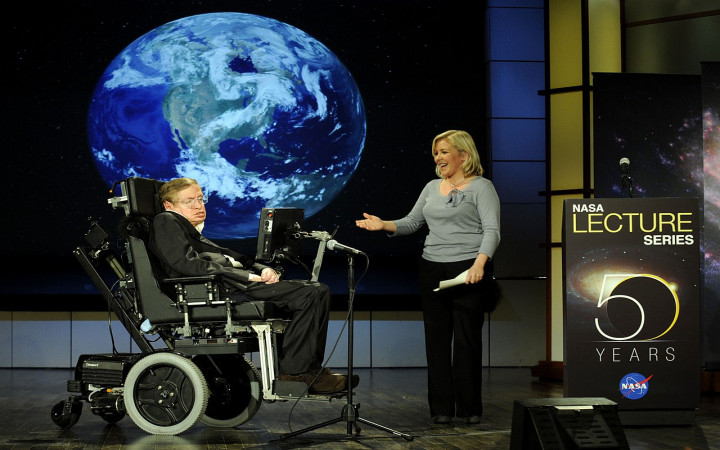Today’s Wonder of the Day was inspired by Alex from Madison. Alex Wonders, “Who was Stephen Hawking?” Thanks for WONDERing with us, Alex!
Do you ever relax in bed at night, contemplating the big questions of the universe? How did the universe begin? Are UFOs real? Will we ever find alien life somewhere out there? Is it possible to send a colony of people to live on Mars?
If you've ever given these weighty questions much thought, then you share a bond with one of the great scientists of the last century: Stephen Hawking. Due to a debilitating disease, Hawking spent much of his life in a wheelchair and needing a computerized speech synthesizer.
Despite these limitations, Hawking became a bit of a "rock star" scientist because of his willingness and desire to bring science to popular culture. His efforts included guest appearances on The Simpsons, Star Trek: The Next Generation, and The Big Bang Theory.
Born Stephen William Hawking in 1942 in England, Hawking seemed to be destined to study the skies. According to his mother, Hawking "always had a strong sense of wonder." She "could see that the stars would draw him."
Hawking studied physics at Oxford before earning his doctorate in cosmology at Cambridge. At age 21, he was diagnosed with amyotrophic lateral sclerosis (ALS), often called Lou Gehrig's disease.
ALS is an incurable degenerative neuromuscular disease. When he was diagnosed while studying at Cambridge, doctors only gave Hawking two years to live. Fortunately, he beat those odds and went on to live more than 50 years, finally succumbing to the disease in 2018.
Despite the disabling effects of the disease, in some ways it helped Hawking to become the scientist he was meant to be. Before his diagnosis, Hawking was bored with life. Afterward, however, he knew there was plenty to live for and he renewed his dedication to his education and research.
Hawking specialized in the field of general relativity. He's particularly famous for his theories and research on the physics of black holes. Over the years, he received many prestigious honors. For example, in 1979, he was appointed to Cambridge's Lucasian professorship of mathematics, a position once held by Sir Isaac Newton.
In addition to his scientific research, Hawking also wrote books to help explain the mysteries of the universe to the general public. In 1988, he published A Brief History of Time, which sold millions of copies and became a worldwide bestseller.
When Hawking passed away in 2018, fellow theoretical physicist Lawrence Krauss wrote, "A star just went out in the cosmos. We have lost an amazing human being. Stephen Hawking fought and tamed the cosmos bravely for 76 years and taught us all something important about what it truly means to celebrate about being human."




